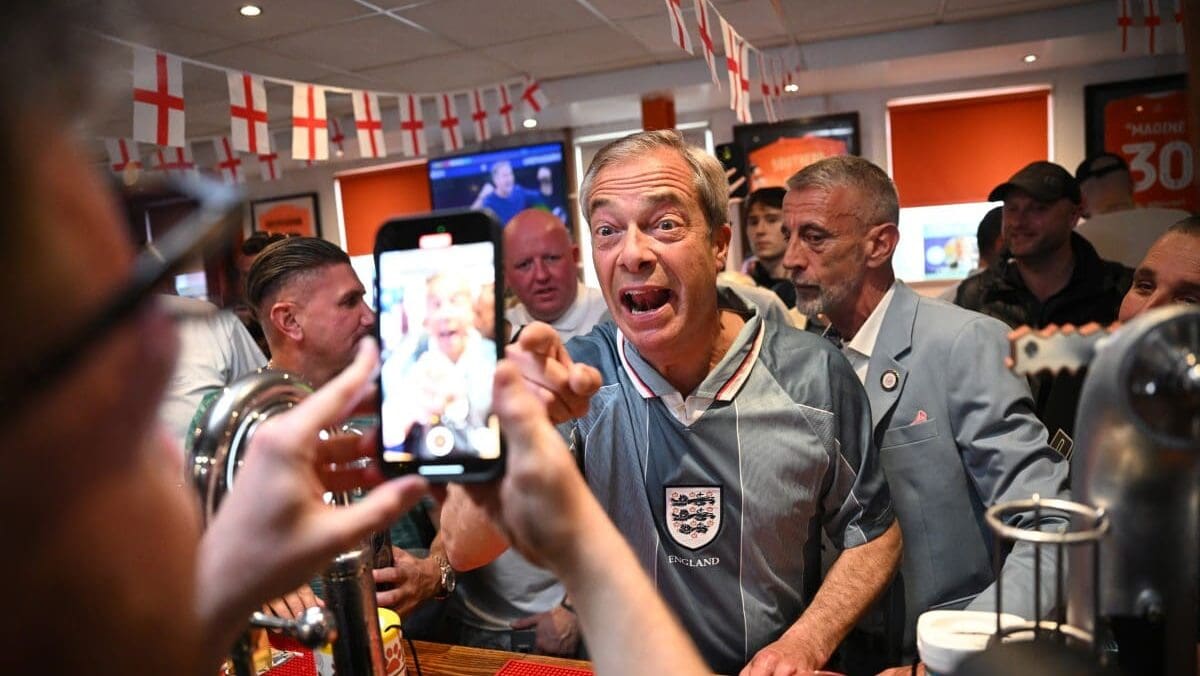
Leader of Reform UK Nigel Farage wearing a 1996 England football shirt poses for a picture as he joins England football fans watching a live broadcast of the UEFA Euro 2024 Group C football match between Denmark and England at The Armfield Club in Blackpool, northwestern England, on June 20, 2024, in the build-up to the UK general election on July 4.
Photo: Oli SCARFF / AFP
The media narrative through this election campaign has been that Reform will secure votes from non-voters and disgruntled Conservative Party supporters. But Britons who backed Labour in 2019 are choosing to back Nigel Farage instead of Sir Keir Starmer, too.
New polling suggests that Reform is taking 7% of the 2019 Labour vote. And that’s after both the Tories and Labour, as well as the mainstream media, spent about a week bashing Farage over his belief that the war in Ukraine was in part “provoked” by NATO and EU expansion.
Fieldwork for the JLP polling of just over 2,000 voters also took place after Channel 4 released its exposé of what it described as a Reform canvasser saying deeply offensive things about migrants and Prime Minister Rishi Sunak. Reform reported the broadcaster to the elections watchdog after it emerged that the individual is an actor who specialises in both “rough speaking” and “secret filming.” The party has also now claimed that Channel 4’s undercover plants attempted to “trap” Reform volunteers into commenting on Tommy Robinson, the founder of the English Defence League (EDL), and George Floyd.
The figure of 7% seems low, but it is—as pollster James Johnson pointed out—“a statistically significant increase” from the 3% of 2019 voters switching to Reform recorded the week before.
NEW: 🚨 Labour to Reform switchers on the rise 🚨
— James Johnson (@jamesjohnson252) July 1, 2024
Reform UK is now taking 7% of the Labour 2019 vote, a statistically significant increase from 3% last week
28th June – 1st July, 2,028 GB adults, @JLPartnersPolls for @restispolitics
It is also worth noting that reports pointing to the percentage of Tory voters choosing to back Reform this time around (32% according to one recent poll) describe those who voted for the party in 2019 as Conservatives. But many of these individuals are likely to be traditional Labour voters—those in so-called ‘Red Wall’ seats who switched to the Tories for the first time at the last general election in the hope of ‘getting Brexit done’ under Boris Johnson.
All that is to say that Reform is taking more votes from Labour than many are giving them credit for. Not—given Britain’s large-party-favouring electoral system—that this will mean they’ll win any more than a handful of seats in Parliament.
